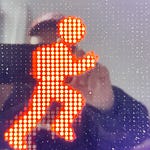I woke up thinking it was 2026. It's like when you're half-awake and genuinely believe for three perfect seconds that the world isn’t completely f*****. Except this time, the delusion isn't about missed deadlines or some embarrassing sentence you uttered the day before—it's about how we've been quietly outsourcing ourselves, piece by piece, to machines that know us better than we know ourselves.
In the early days of 2024 we’d joke about offloading boring s*** to AI. Spreadsheets. Scheduling. The terrible administrative labor that makes adult work life feel like a never-ending bureaucratic nightmare. But soon? We're not just dumping our worst tasks. We're transplanting entire fragments of our identity into these digital appendages, these algorithmic extensions that are less tools and more like weird, hyperintelligent assistant-parasites slowly consuming our sense of self. It's not just convenience anymore. It's something more—I don't know—existentially concerning?
Our phones were the first betrayers, whispering about us to advertisers, subtly match-making and shaping our desires. Google knows our most secret questions. Facebook, even in its long slow slop-filled death, track our forgotten crushes. LinkedIn is the digital yearbook of past-colleagues and random connections. But ChatGPT, with its new enhanced ‘memory’, and its infinite conversational patience, now holds a deeper, more unsettling form of intimacy. It's the friend who remembers every midnight musing, every strange hypothetical scenario, every existential anxiety typed in a 3 AM haze. It can simulate our identities, sometimes more coherently than we can. How long until we trust it more than our own intuition—or worse, lose track of where it ends and we begin?
Imagine the gentle erosion of self-reliance as we let AI decide what we might want before we know we want it. We've been here before, haven't we? Predictive search finishes our questions. Predictive text finishes our sentences. Spotify curates moods we didn't know we were feeling. Now AI shapes entire narratives around who we are, crafting personalities from digital residue—every prompt, every hesitation, every edit. A simulated digital twin of self emerges, accurate enough to feel authentic but calibrated just enough to keep us coming back for more.
Here's the existential kicker: once AI convincingly imitates you, does it begin to replace you? You’re no longer just delegating—you're duplicating, creating shadows of yourself that live indefinitely, untethered from your biological life and whims. Memories stored digitally become more precise than human recollection, dreams cataloged more vividly than fuzzy morning semi-rememberings. Eventually, trusting the algorithm might feel safer, smarter. Who wouldn't prefer the certainty of data over the messiness of human judgment?
This creeping convergence blurs the line between self-awareness and machine prediction. Soon, intuition won't be that gut feeling in your stomach but a gentle nudge from a machine that knows you better than you know yourself. Will we be ready to live in a world where the most intimate connection you have isn’t with another person, but with a meticulously trained neural network?
And here's the thing no one wants to admit: your AI self isn’t designed purely for your benefit. It’s valuable—perhaps more than your social security number, your birth certificate, or your fingerprints. It's worth more than all those quirky Instagram and TikTok likes or half-hearted Google searches combined. Because your AI self isn’t just a profile; it’s a dynamic, evolving blueprint of your most private impulses. Advertisers would kill (figuratively, let's hope) for access to an intimacy this deep. Forget targeted ads—think targeted lives. Imagine brands not just influencing decisions but actively co-authoring your story.
So, the real question isn’t whether we'll let AI in—in my half-remembered dream of 2026 we already have. It’s whether we'll even notice when we've handed over the keys completely. The algorithm becomes less of a helper and more of a mirror—reflecting a self we didn’t know we wanted, but now can’t live without.
Are you ready to trust your digital doppelgänger more than yourself?










